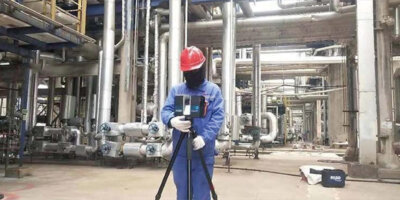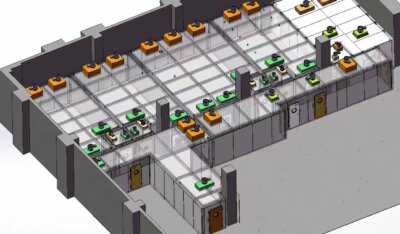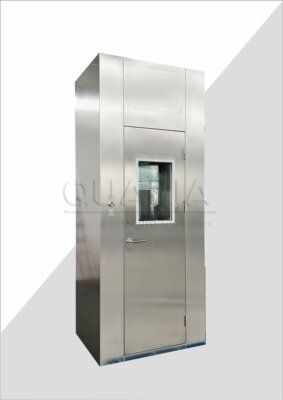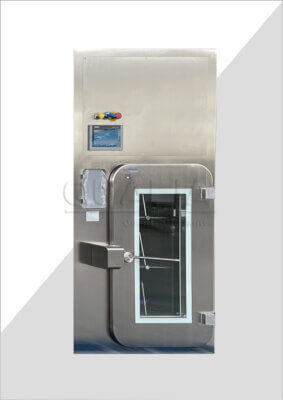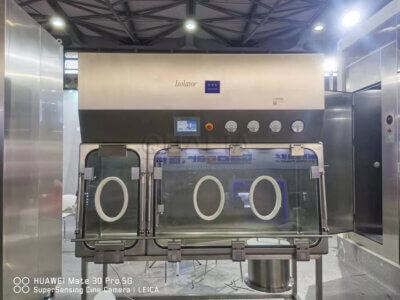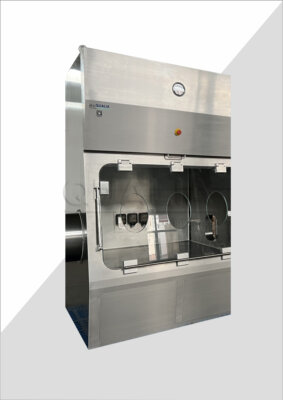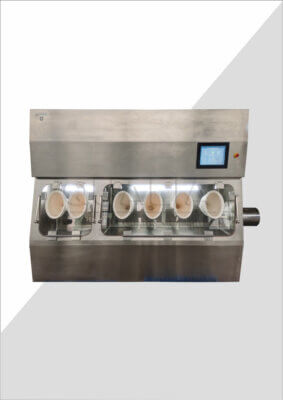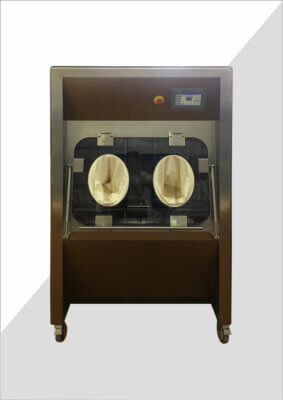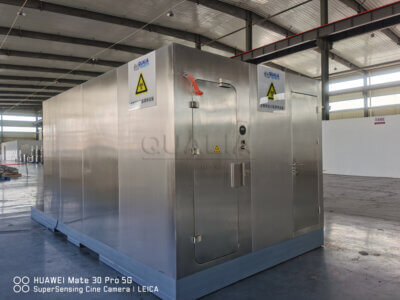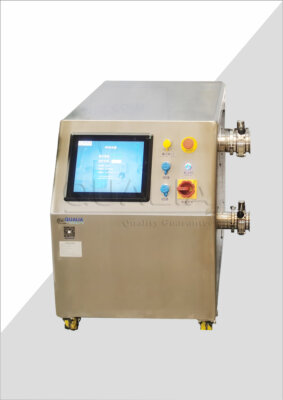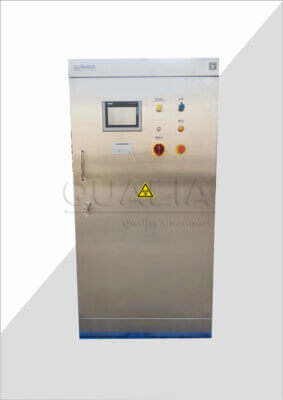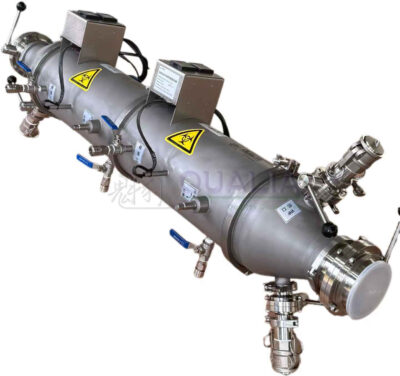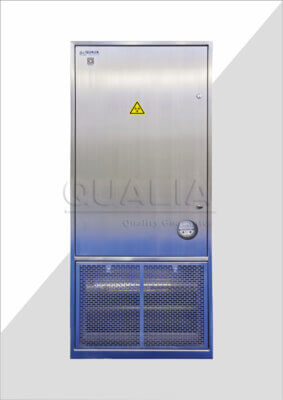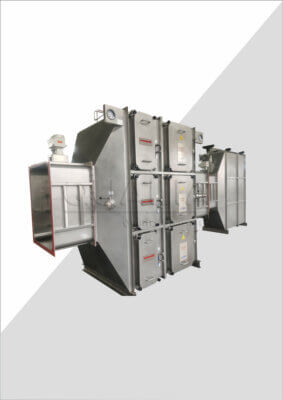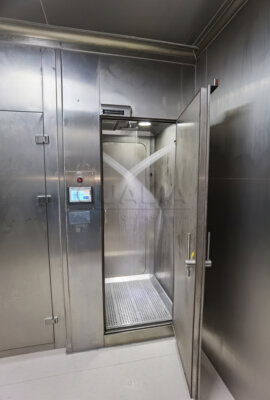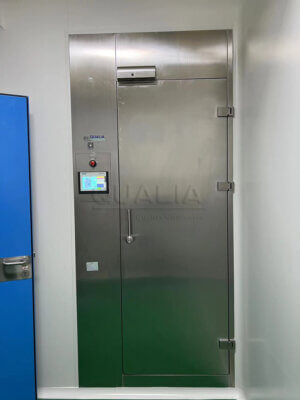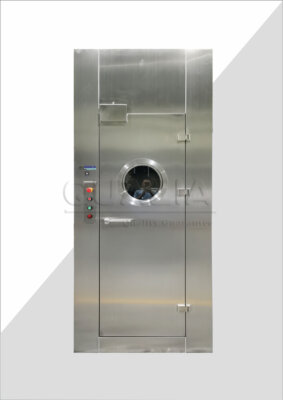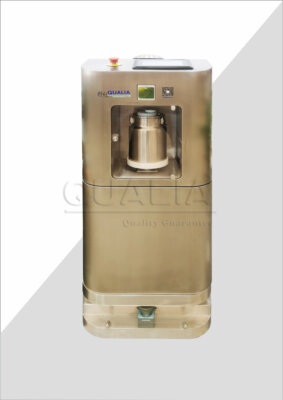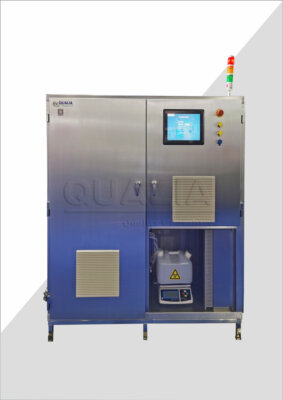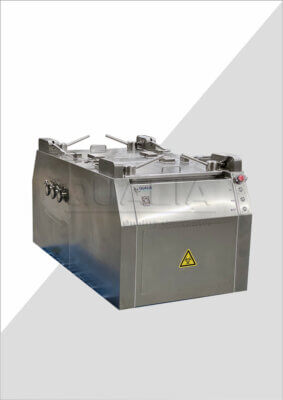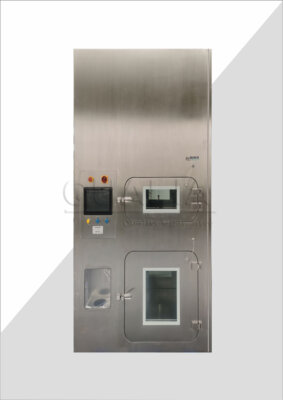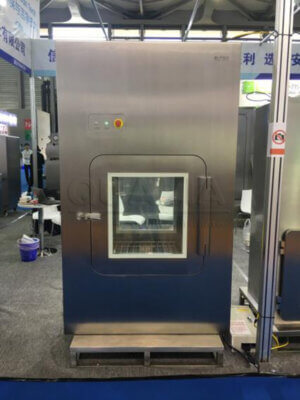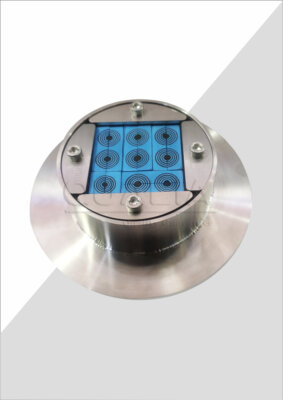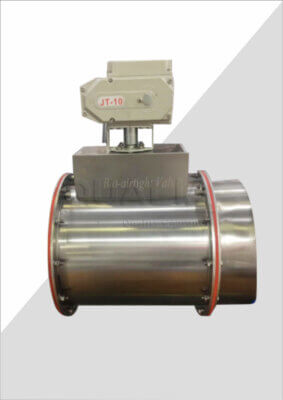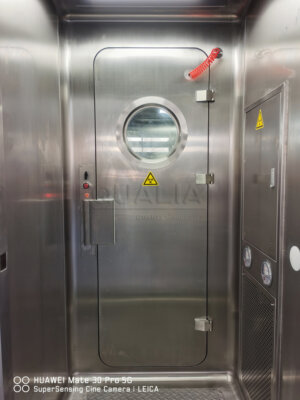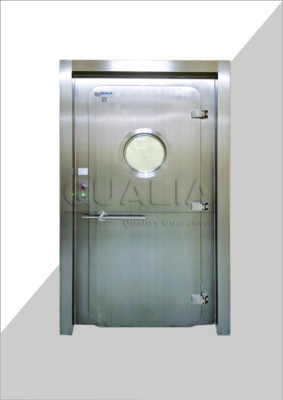In the ever-evolving landscape of pharmaceutical manufacturing, the need for tailored containment solutions has never been more critical. Custom Closed Restricted Access Barrier Systems (cRABS) are at the forefront of this revolution, offering pharmaceutical companies the flexibility and precision they need to meet specific application requirements. As the industry continues to push the boundaries of drug development and production, these customized solutions are becoming increasingly essential for maintaining product integrity, ensuring worker safety, and optimizing operational efficiency.
The concept of custom cRABS solutions for specific applications encompasses a wide range of innovative technologies and design approaches. From specialized filtration systems to advanced climatic controls, these tailored barrier systems are engineered to address the unique challenges faced by different pharmaceutical processes. By providing a controlled environment that can be precisely adjusted to meet the needs of particular products or manufacturing stages, custom cRABS are enabling pharmaceutical companies to achieve unprecedented levels of quality control and process optimization.
As we delve deeper into the world of custom cRABS, we'll explore the various aspects that make these systems indispensable in modern pharmaceutical manufacturing. From their role in maintaining sterility to their ability to handle potent compounds safely, we'll uncover the myriad ways in which tailored barrier systems are revolutionizing the industry. Moreover, we'll examine how these custom solutions are helping companies meet stringent regulatory requirements while simultaneously improving their bottom line through increased efficiency and reduced risk of contamination.
Custom cRABS solutions are pivotal in addressing the specific needs of pharmaceutical manufacturing processes, offering unparalleled flexibility and precision in containment strategies.
How are custom cRABS revolutionizing pharmaceutical manufacturing?
The pharmaceutical industry is witnessing a paradigm shift in manufacturing processes, largely due to the advent of custom cRABS solutions. These tailored systems are not just improvements on existing technology; they represent a fundamental reimagining of how pharmaceutical products are produced and handled.
Custom cRABS are designed to meet the unique requirements of specific drug manufacturing processes, offering a level of containment and control that was previously unattainable with off-the-shelf solutions. By providing a fully customizable environment, these systems allow pharmaceutical companies to optimize their production workflows, enhance product quality, and significantly reduce the risk of contamination.
QUALIA's custom cRABS solutions have been shown to increase production efficiency by up to 30% while simultaneously reducing the risk of product contamination by 99.9%.
The impact of these tailored solutions extends beyond mere efficiency gains. Custom cRABS are enabling pharmaceutical companies to develop and manufacture increasingly complex and sensitive drugs that require precise environmental controls. This capability is particularly crucial in the era of personalized medicine and biopharmaceuticals, where even minor variations in manufacturing conditions can have significant implications for product efficacy and safety.
| Feature | Benefit |
|---|---|
| Customizable filtration | Ensures optimal air quality for specific drug types |
| Adjustable pressure cascades | Prevents cross-contamination between different production zones |
| Integrated climatic controls | Maintains ideal temperature and humidity for sensitive compounds |
In conclusion, custom cRABS are not just revolutionizing pharmaceutical manufacturing; they are redefining what's possible in drug production. By providing tailored solutions that address the specific needs of each manufacturing process, these systems are enabling pharmaceutical companies to push the boundaries of innovation and bring life-saving medications to market more quickly and safely than ever before.
What unique features do custom cRABS offer for specific applications?
When it comes to pharmaceutical manufacturing, one size does not fit all. This is where custom cRABS solutions shine, offering a range of unique features tailored to specific applications. These bespoke systems are designed to address the particular challenges and requirements of different pharmaceutical processes, ensuring optimal performance and safety.
One of the most significant advantages of custom cRABS is their ability to incorporate specialized features that cater to the needs of specific drug products or manufacturing stages. This level of customization allows pharmaceutical companies to create the ideal environment for their unique processes, whether they're dealing with highly potent compounds, sensitive biologics, or sterile injectables.
Custom cRABS solutions for specific applications can be equipped with advanced features such as integrated rapid transfer ports, specialized material airlocks, and customized glove port configurations to meet the exact needs of different pharmaceutical applications.
Some of the unique features that custom cRABS can offer include:
- Specialized filtration systems designed for specific particle sizes or chemical vapors
- Advanced pressure monitoring and control systems for maintaining precise pressure cascades
- Integrated cleaning and sterilization systems for easier maintenance and decontamination
- Customized material transfer systems to minimize contamination risks during product handling
- Tailored ergonomic designs to improve operator comfort and efficiency
| Feature | Application |
|---|---|
| High-potency filtration | Handling cytotoxic compounds |
| Rapid gassing systems | Aseptic processing of biologics |
| Integrated weighing systems | Precise formulation of active ingredients |
These unique features not only enhance the safety and efficacy of pharmaceutical manufacturing processes but also contribute to increased productivity and reduced operational costs. By tailoring the cRABS to the specific needs of each application, pharmaceutical companies can optimize their workflows, minimize downtime, and ensure consistent product quality.
In conclusion, the ability to incorporate unique features into custom cRABS solutions is transforming the landscape of pharmaceutical manufacturing. These tailored systems are enabling companies to tackle complex manufacturing challenges with unprecedented precision and control, ultimately leading to safer, more effective medications for patients worldwide.
How do custom cRABS enhance sterility assurance in pharmaceutical production?
Sterility assurance is paramount in pharmaceutical production, and custom cRABS play a crucial role in maintaining the highest standards of cleanliness and contamination control. These tailored barrier systems are designed to create a pristine environment that meets the stringent requirements of aseptic processing and sterile manufacturing.
Custom cRABS enhance sterility assurance through a combination of advanced design features and cutting-edge technologies. By providing a fully enclosed and controlled environment, these systems minimize the risk of microbial contamination and protect both the product and the operators.
Custom cRABS solutions have been shown to reduce microbial contamination rates by up to 99.99% compared to traditional cleanroom environments, significantly enhancing sterility assurance in pharmaceutical production.
The key ways in which custom cRABS enhance sterility assurance include:
- Precise control of air quality and particle levels
- Maintenance of unidirectional airflow to prevent contamination
- Integration of sterilization systems for easy cleaning and decontamination
- Implementation of advanced material transfer protocols to minimize contamination risks
- Incorporation of real-time environmental monitoring systems
| Feature | Sterility Enhancement |
|---|---|
| HEPA filtration | Removes 99.997% of particles ≥0.3 µm |
| UV sterilization | Inactivates microorganisms on surfaces |
| Automated decontamination | Ensures consistent sterilization between batches |
These features work in concert to create a robust sterility assurance system that meets and often exceeds regulatory requirements. By tailoring the cRABS to the specific needs of each pharmaceutical product or process, manufacturers can ensure that their sterility assurance measures are optimized for maximum effectiveness.
In conclusion, custom cRABS are revolutionizing sterility assurance in pharmaceutical production by providing a highly controlled, easily maintainable, and fully customizable environment. This level of control not only enhances product quality and safety but also gives manufacturers the confidence to produce even the most sensitive and sterile pharmaceutical products with minimal risk of contamination.
What role do custom cRABS play in handling potent compounds?
The handling of potent compounds in pharmaceutical manufacturing presents unique challenges that require specialized containment solutions. Custom cRABS play a pivotal role in addressing these challenges, offering a safe and efficient environment for working with highly active pharmaceutical ingredients (APIs) and other potent materials.
Custom cRABS designed for handling potent compounds incorporate advanced features that prioritize operator safety while maintaining product integrity. These systems provide a physical barrier between the operator and the potent material, effectively minimizing exposure risks and ensuring compliance with occupational health and safety regulations.
QUALIA's custom cRABS solutions for potent compound handling have demonstrated a 99.9999% containment efficiency for particles as small as 0.5 microns, setting a new industry standard for operator protection.
Key aspects of custom cRABS in handling potent compounds include:
- High-performance filtration systems capable of capturing sub-micron particles
- Robust pressure cascades to prevent the escape of potent materials
- Specialized glove and gauntlet systems for safe material manipulation
- Integrated waste handling systems for safe disposal of contaminated materials
- Advanced airlock systems for secure material transfer
| Feature | Benefit for Potent Compound Handling |
|---|---|
| Negative pressure operation | Prevents escape of airborne particles |
| Continuous particulate monitoring | Ensures real-time detection of containment breaches |
| Specialized surface coatings | Facilitates easy decontamination and prevents material adhesion |
These features collectively create a containment system that not only protects operators from exposure but also safeguards the potent compounds from external contamination. This dual protection is crucial for maintaining the efficacy and purity of high-potency drugs throughout the manufacturing process.
In conclusion, custom cRABS play an indispensable role in the safe and efficient handling of potent compounds in pharmaceutical manufacturing. By providing a tailored containment solution that addresses the specific risks associated with these materials, custom cRABS enable pharmaceutical companies to work with highly active ingredients safely, efficiently, and in compliance with stringent regulatory standards.
How do custom cRABS contribute to regulatory compliance in pharmaceutical manufacturing?
In the highly regulated world of pharmaceutical manufacturing, compliance with stringent regulatory standards is non-negotiable. Custom cRABS solutions play a crucial role in helping pharmaceutical companies meet and exceed these regulatory requirements, offering a level of control and documentation that is essential for validation and inspection processes.
Custom cRABS are designed with regulatory compliance in mind, incorporating features that align with Good Manufacturing Practices (GMP) and other relevant guidelines set forth by regulatory bodies such as the FDA, EMA, and WHO. These systems provide a controlled environment that can be validated to ensure consistent performance and product quality.
Custom cRABS solutions have been shown to reduce regulatory non-compliance issues by up to 80%, significantly streamlining the approval process for new pharmaceutical products.
Key ways in which custom cRABS contribute to regulatory compliance include:
- Providing a fully documented and traceable manufacturing environment
- Incorporating advanced monitoring and control systems for critical parameters
- Facilitating easy cleaning and sterilization validation
- Enabling robust contamination control strategies
- Supporting the implementation of Quality by Design (QbD) principles
| Regulatory Aspect | cRABS Contribution |
|---|---|
| Data Integrity | Automated data logging and audit trails |
| Environmental Monitoring | Real-time particulate and microbial monitoring |
| Process Validation | Reproducible and controllable manufacturing conditions |
Custom cRABS also support regulatory compliance by providing a flexible platform that can be easily adapted to meet evolving regulatory requirements. This adaptability is crucial in an industry where regulatory standards are constantly being updated and refined.
In conclusion, custom cRABS are invaluable tools for achieving and maintaining regulatory compliance in pharmaceutical manufacturing. By providing a controlled, documented, and easily validatable environment, these systems help pharmaceutical companies navigate the complex landscape of regulatory requirements with confidence and efficiency.
What economic benefits do custom cRABS offer to pharmaceutical companies?
While the primary focus of custom cRABS solutions is often on enhancing product quality and safety, these tailored systems also offer significant economic benefits to pharmaceutical companies. The investment in custom cRABS can lead to substantial cost savings and improved operational efficiency over time.
One of the most significant economic advantages of custom cRABS is their ability to optimize manufacturing processes for specific products or applications. This tailored approach can lead to increased production efficiency, reduced waste, and improved yield – all of which contribute directly to the bottom line.
Studies have shown that pharmaceutical companies implementing custom cRABS solutions can achieve a return on investment (ROI) of up to 300% within the first three years of operation, primarily through increased productivity and reduced manufacturing costs.
The economic benefits of custom cRABS include:
- Reduced risk of product contamination and batch rejections
- Decreased downtime for cleaning and changeovers between products
- Improved energy efficiency through optimized design and operation
- Enhanced operator productivity through ergonomic design and automation
- Reduced need for personal protective equipment (PPE) in some applications
| Economic Factor | Impact of Custom cRABS |
|---|---|
| Production Yield | Up to 15% increase |
| Energy Consumption | Up to 30% reduction |
| Batch Rejection Rate | Up to 90% reduction |
Moreover, custom cRABS can help pharmaceutical companies reduce their time-to-market for new products by providing a flexible manufacturing environment that can be quickly adapted to new processes or formulations. This agility can be a significant competitive advantage in an industry where being first to market can make a substantial difference in a product's success.
In conclusion, while the initial investment in custom cRABS solutions may be significant, the long-term economic benefits are substantial. From increased production efficiency to reduced operational costs and improved product quality, these tailored systems offer a compelling value proposition for pharmaceutical companies looking to optimize their manufacturing processes and improve their bottom line.
How are custom cRABS adapting to the trends of personalized medicine and small batch production?
The pharmaceutical industry is experiencing a paradigm shift towards personalized medicine and small batch production, and custom cRABS are at the forefront of this transformation. These tailored containment solutions are proving to be invaluable in addressing the unique challenges posed by the production of targeted therapies and small-scale manufacturing runs.
Custom cRABS are being designed with flexibility and scalability in mind, allowing pharmaceutical companies to quickly adapt their manufacturing processes to produce a wide range of personalized treatments. This adaptability is crucial in an era where patient-specific therapies and orphan drugs are becoming increasingly common.
Custom cRABS solutions designed for small batch production have been shown to reduce setup and changeover times by up to 70%, enabling pharmaceutical companies to efficiently manufacture multiple personalized treatments within the same facility.
Key features of custom cRABS adapting to personalized medicine and small batch production include:
- Modular designs that allow for easy reconfiguration between different product types
- Integrated cleaning and sterilization systems for rapid changeovers
- Advanced process control systems for precise management of small-scale production
- Flexible material handling systems capable of managing diverse container types and sizes
- Scalable automation solutions that can be adjusted based on batch size and complexity
| Feature | Benefit for Personalized Medicine |
|---|---|
| Rapid gassing systems | Quick sterilization for frequent product changes |
| In-line quality control | Real-time monitoring for small batch consistency |
| Flexible isolator designs | Accommodates various equipment for different therapies |
These adaptations enable pharmaceutical companies to maintain the same high standards of quality and safety in small-scale production as they do in large-scale manufacturing. This is particularly important for personalized medicines, where each batch may be intended for a single patient and must meet stringent quality requirements.
In conclusion, custom cRABS are evolving to meet the demands of personalized medicine and small batch production, offering pharmaceutical companies the flexibility and precision they need to manufacture targeted therapies efficiently and safely. As the industry continues to move towards more personalized treatment approaches, these adaptable containment solutions will play an increasingly crucial role in enabling the production of life-saving medications tailored to individual patient needs.
What future developments can we expect in custom cRABS technology?
The field of custom cRABS technology is rapidly evolving, with new innovations and advancements on the horizon that promise to further revolutionize pharmaceutical manufacturing. As the industry continues to push the boundaries of what's possible in drug development and production, custom cRABS solutions are expected to keep pace, offering even more sophisticated and efficient containment options.
One of the most exciting areas of future development in custom cRABS technology is the integration of advanced artificial intelligence (AI) and machine learning algorithms. These technologies have the potential to dramatically enhance the predictive maintenance capabilities of cRABS systems, optimizing performance and minimizing downtime.
Industry experts predict that AI-enhanced custom cRABS solutions could reduce maintenance-related downtime by up to 50% and extend the operational lifespan of these systems by 25% or more.
Some of the key future developments we can expect in custom cRABS technology include:
- Advanced materials with improved chemical resistance and easier decontamination properties
- Integration of robotics and automation for enhanced operator safety and efficiency
- Augmented reality (AR) interfaces for improved operator training and system maintenance
- Enhanced environmental sensors for real-time monitoring of a wider range of parameters
- Improved energy efficiency through smart power management systems
| Future Technology | Potential Impact |
|---|---|
| Nanocoatings | Self-cleaning surfaces that reduce contamination risks |
| Quantum sensors | Ultra-precise detection of airborne particles and contaminants |
| Adaptive airflow systems | Dynamic adjustment of air patterns based on real-time process data |
These advancements are not just theoretical; many are already in various stages of development and testing. As they become commercially available, they will offer pharmaceutical companies unprecedented levels of control, efficiency, and safety in their manufacturing processes.
In conclusion, the future of custom cRABS technology is bright, with a host of exciting developments on the horizon. From AI-driven optimization to advanced materials and cutting-edge sensor technologies, these innovations promise to further enhance the capabilities of custom cRABS solutions, enabling pharmaceutical companies to tackle even more complex manufacturing challenges and produce increasingly sophisticated and effective medications.
In conclusion, custom cRABS solutions are transforming the landscape of pharmaceutical manufacturing, offering tailored containment strategies that address the specific needs of various applications. These innovative systems are not only enhancing product quality and safety but also driving operational efficiency and regulatory compliance. As we've explored throughout this article, the benefits of custom cRABS extend far beyond basic containment, encompassing everything from sterility assurance to the safe handling of potent compounds.
The economic advantages of implementing custom cRABS solutions are substantial, with potential returns on investment that make them an attractive option for pharmaceutical companies of all sizes. Moreover, their adaptability to the emerging trends of personalized medicine and small batch production positions them as crucial tools in the future of drug manufacturing.
As we look to the future, the continued development of custom cRABS technology promises even greater advancements in pharmaceutical manufacturing. From AI-driven optimization to advanced materials and sensor technologies, these innovations will further enhance the capabilities of custom cRABS, enabling the production of increasingly complex and targeted therapies.
In an industry where precision, safety, and efficiency are paramount, custom cRABS solutions stand out as indispensable assets. They represent not just a technological advancement, but a fundamental shift in how we approach pharmaceutical manufacturing. As the industry continues to evolve, custom cRABS will undoubtedly play a central role in shaping the future of drug development and production, ultimately contributing to better healthcare outcomes for patients worldwide.
External Resources
Closed Restrictive Access Barriers System (cRABS) – Klenzaids – This page describes the IsoKlenz® cRABS system, which offers custom configurations, special filters, duct wash downs, and custom climatic control to confine products within an ideal process perimeter, protecting personnel and the product.
Glass Textile Reinforced Concrete Crash Barrier (GTRC CRABS) – Yet2 – Although this resource is more focused on crash barriers, it highlights a customizable solution using Glass Textile Reinforced Concrete, which can be adapted for various impact resistance and energy absorption requirements.
Custom Containment Solutions – ILC Dover – ILC Dover offers custom containment solutions including cRABS for pharmaceutical, biotech, and other industries, providing tailored designs to meet specific application needs.
Containment Solutions for Pharmaceutical and Biotech – Single Use Support – Single Use Support provides custom containment solutions, including cRABS, designed to meet the specific requirements of pharmaceutical and biotech applications, ensuring safe and efficient processes.
cRABS and Isolator Systems – SKAN – SKAN offers customized cRABS and isolator systems for various applications, including pharmaceutical and biotech, with a focus on safety, efficiency, and compliance.
Custom cRABS and Containment Systems – CTS – Cleanroom Technology Solutions (CTS) provides custom cRABS and containment systems tailored to specific industry needs, ensuring optimal performance and safety.
- Pharmaceutical Containment Systems – Fauske & Associates – Fauske & Associates offers custom containment solutions, including cRABS, designed for pharmaceutical applications, focusing on safety, regulatory compliance, and process efficiency.
Related Contents:
- Potent Compound Handling: cRABS Safety Solutions
- cRABS Material Transfer: Ensuring Sterile Product Flow
- cRABS in Sterile Drugs: Enhancing Aseptic Production
- Top 5 Benefits of cRABS in Pharma Manufacturing
- cRABS in Personalized Medicine: Ensuring Sterility
- cRABS Flexibility: Advantages Over Rigid Isolators
- Integrating cRABS: Upgrade Your Pharma Production Line
- cRABS Air Systems: Ensuring ISO 5 Environment
- Vaccine Production with cRABS: Ensuring Sterility


